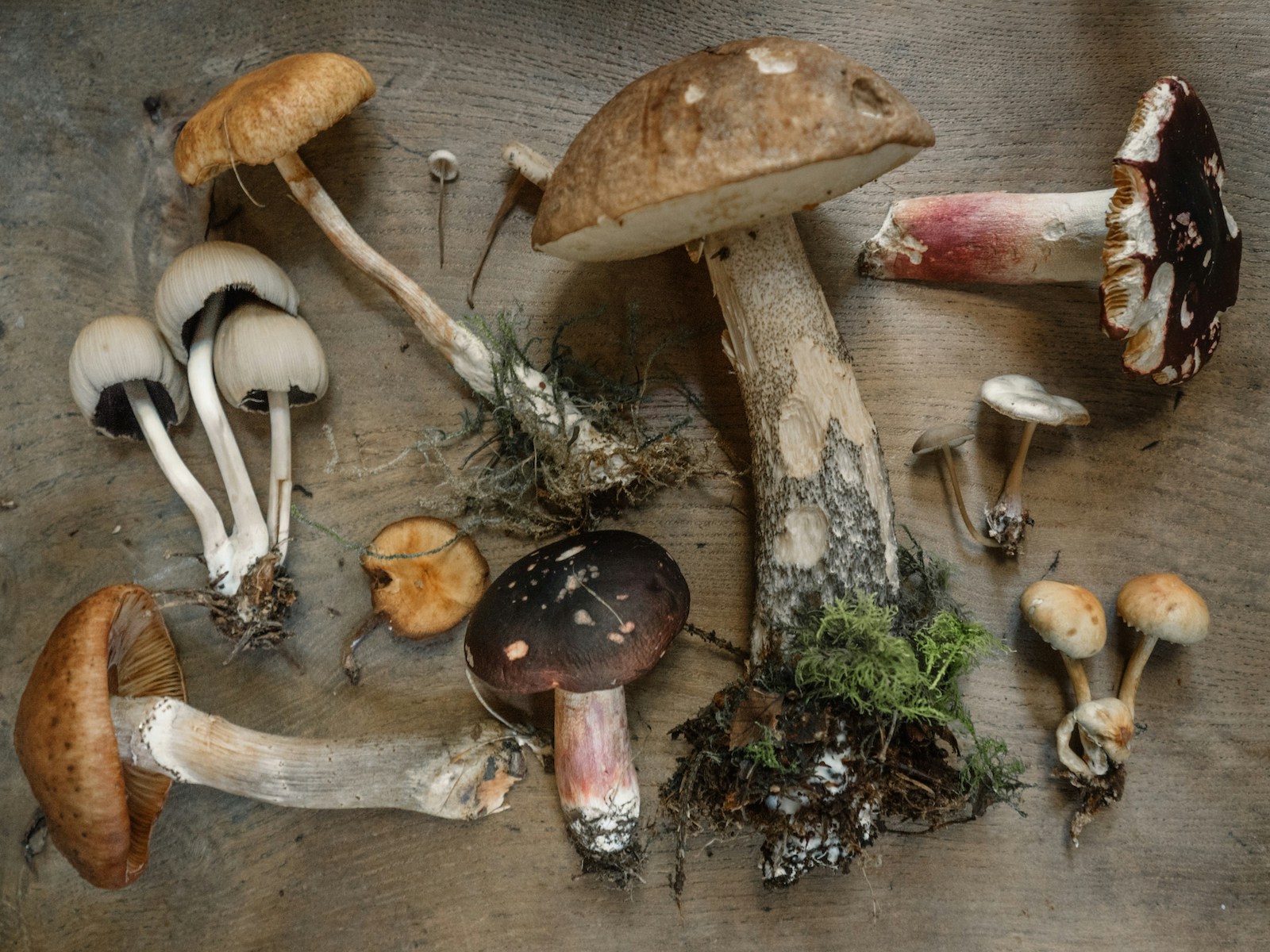Photo by Timothy Dykes.
Did you know that some types of mushrooms can capture as much carbon per acre as a small forest? With increasing attention to eco-friendly food sources, mushrooms are one of the most sustainable and versatile options we have. Not only are they easy to grow in small, shaded spaces, but they offer a host of benefits that extend well beyond the kitchen.
Forests, fungi, and climate solutions
When it comes to sustainability, mushrooms truly excel. They require only about 1.8 gallons of water per pound to grow—a fraction compared to most crops. Unlike traditional plants, mushrooms can be cultivated indoors in vertical stacks, yielding a large amount of food in a small area. This makes them ideal for urban farming, where space is often limited and the demand for fresh, local food is high.
Perhaps one of the most fascinating aspects of mushrooms is their ability to grow on almost anything. Instead of needing rich soil, mushrooms thrive on discarded materials like coffee grounds, sawdust, or straw, turning waste into nutritious fodder for food. For example, GroCycle, a UK-based social enterprise, repurposes used coffee grounds to grow oyster mushrooms. By collecting coffee grounds from local cafes, GroCycle not only prevents waste from going to landfills but also produces food from what would otherwise be thrown away. Since 2011, GroCycle has recycled more than 7,500 kilograms (16,534 pounds) of coffee grounds and produced 20 tonnes (44,092 pounds) of mushrooms, offering a successful model of circular agriculture that anyone can implement!

Photo by Andrew Ridley
In forests, mushrooms grown alongside trees can even help capture carbon, mitigating against climate change. Known as “mycoforestry,” this practice involves cultivating edible mushrooms alongside living trees in managed forests. A 2023 study found that growing edible ectomycorrhizal fungi (EMF) in forests can capture up to 12.8 metric tons of carbon per hectare (about 2.5 acres) each year while providing enough food to nourish roughly 19 million people. This practice not only boosts food security but also enhances the carbon-capturing potential of forests, positioning mycoforestry as a dual solution for feeding people and combating climate change.
A perfect plant-based addition to your diet
Mushrooms are packed with essential vitamins and minerals like B vitamins, vitamin D, selenium, and potassium. Emerging research also shows that mushrooms contain unique compounds believed to support immune health and reduce inflammation. These qualities make mushrooms an excellent addition to any balanced diet and an easy way to incorporate more plant-based, nutrient-rich foods into your meals.
With their unique health and sustainability benefits, mushrooms are a flavorful, sustainable alternative to meat. Several companies, like Meati Foods, have been experimenting with mushroom-based meats, creating protein-rich “steaks” and “chicken” from mycelium that mimic the taste and texture of real meat. Products like this offer a nutritious, low-impact option compared to animal-based foods, which emit twice as much greenhouse gas emissions as those of plant-based options.
Mushrooms are also making their way into the snack and beverage aisles. Mushroom-based snacks, like chips and jerky, are an alternative to the conventional, while mushroom-infused coffee, teas, and energy bars have blown up.

Photo by Ash Edmonds
Beyond the kitchen: Innovative uses of fungi
Fungi are not just for our plates; they’re also paving the way for groundbreaking innovations. Mycelium—the root-like structure of fungi—is now being used to create sustainable, biodegradable alternatives to plastic packaging. For example, Ecovative Design, a company based in New York, has developed mycelium-based packaging that is lightweight, durable, and fully compostable within a month. Mycelium material is already being used to replace plastic foam packaging in products ranging from furniture to electronics. Not only does this offer an eco-friendly solution to plastic waste, but mycelium-based packaging is produced through a carbon-neutral process, further benefiting the environment.
Mushrooms are also being studied for their role in environmental cleanup. Mycoremediation, the practice of using mushrooms to break down pollutants, has shown promise in removing toxins from contaminated soil and water. For example, oyster mushrooms have been used to break down oil spills and certain chemicals, providing a natural way to detoxify damaged ecosystems. Fungi are even being explored for biofuel production and plastic decomposition, showing just how versatile they are in tackling environmental challenges.
A future powered by fungi
Mushrooms are more than just an earthy, spongy ingredient. With minimal resource needs, an impressive nutritional profile, and creative, groundbreaking applications, mushrooms offer some of the most versatile solutions to our biggest environmental challenges. As their potential continues to unfold, adding more mushrooms to your meals—or even trying your hand at growing them—can be a simple way to support a healthier, more sustainable future.
